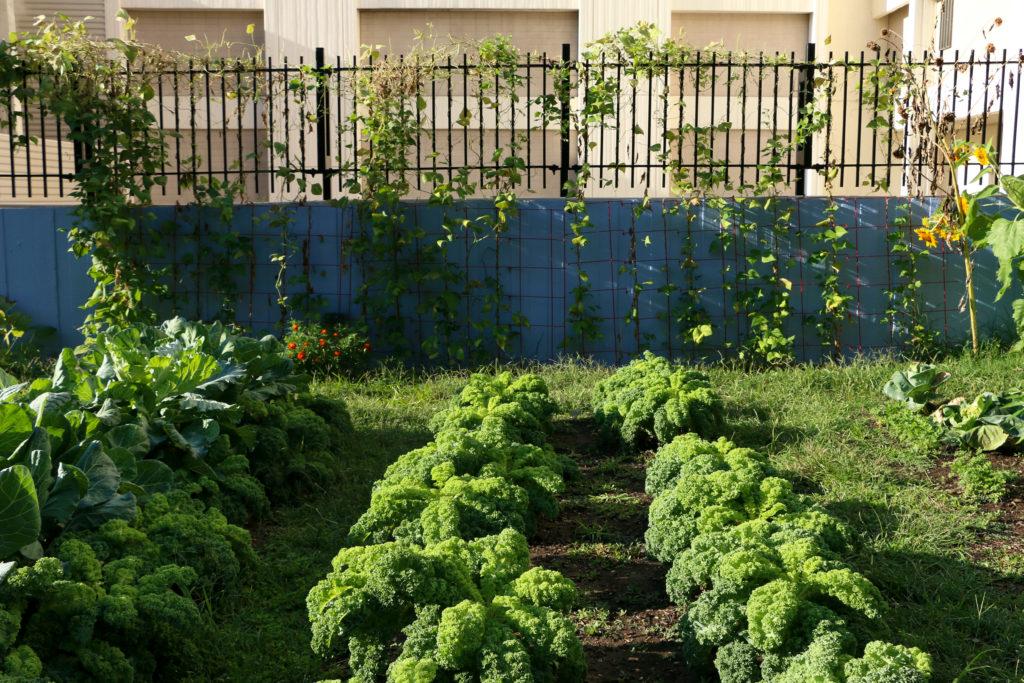Updated: Aug. 27, 2018 at 9:38 p.m.
A year after student leaders launched a campaign to save 1 million pieces of paper, the Student Association is pouring its resources into a new sustainability project: a food cooperative.
The cooperative – a small-scale, student-led food market and cafe – will make produce and prepared food at a low cost available to students, student leaders said. The project, still in its early stages, will include local food partners and be led by students – and organizers are aiming to present their plans to administrators by the end of the fall semester.
Izzy Moody, the SA’s vice president for sustainability who is working to develop the cooperative, said the group is currently developing a policy proposal, a business plan and a purchasing plan for the market.
The operation will offer fruits, vegetables and prepared meals priced lower than they would be at area stores like Whole Foods – but the exact prices have yet to be determined, she said.
She said the location of the cooperative has not been decided but would ideally be located on campus.
Moody said the cooperative will be controlled entirely by students. Three students are currently involved in designing the market, but Moody said the final number of student employees has not been determined. She added that the student employees will also have control over their compensation, but wages have not yet been determined.
“It’s an opportunity to challenge people’s conceptions of what a food business looks like and a good chance for student employment to also be educational,” Moody said.
Moody said she has been researching several “sources” to fund the cooperative but declined to say what they were. She also declined to say how much it will cost to run the operation.
Lizzie Ferrante, a senior involved in developing the market, said GW’s food cooperative will provide prepared food from local farms that ethically grow and prepare the food products. She said Community FoodWorks, a D.C.-based business that buys and distributes wholesale fruits, vegetables and other goods from local farmers, is the only confirmed partner for the cooperative.
“We’re prioritizing prepared food because we think there’s a lack of affordable prepared food on campus, especially for freshmen,” she said. “The idea is for it also to be more affordable and give students more choices so you don’t have to spend $9 on a Whole Foods breakfast.”
Ferrante declined to say how many partners they aim to collaborate with.
The project echoes recent efforts to offer students healthier meals on GWorld. SA leaders partnered with Hungry Harvest, a Baltimore-based produce delivery service, last semester to provide fresh fruits and vegetables to students. The University also added Healthy Fresh Meals, a food preparation and delivery service, to its list of GWorld vendors over the summer.
Moody said she initially came up with the idea for a food cooperative after attending the Rooting DC conference – an educational forum about urban agriculture and food systems – in March. She said she wanted the food service to be an effective tool to mitigate food insecurity on campus because “people are empowered to control what they’re eating.”
Food insecurity has increasingly become a hot topic for students and administrators in recent months, as students have raised concerns that the University’s “open” dining plan leaves students without enough cash to eat three meals a day. The University’s student-run food pantry, dubbed “The Store,” opened in 2016 to help combat the issue.
Officials also increased student dining plans last spring following student advocacy concerning food insecurity – allocating more money to students without an in-unit kitchen.
Moody said fostering a resource like a food cooperative as a method of addressing food insecurity is common practice at several other universities, including Temple University and the University of California, Berkeley, where cooperatives are also run like a small grocery store or cafe.
Kathleen Grady, the director of sustainability at Temple University, said having a food cooperative on campus can teach students how to build a sustainable business model and make major business decisions – from determining what food suppliers to work with to how to manage a budget that maintains low prices.
Grady said Temple University’s The Rad Dish – a cafe that sells sustainable produce and meals – received about $30,000 from the university before the program officially launched in 2014. She added that the program’s business model allows students to purchase a pre-prepared meal for less than $6, though the cafe sometimes only breaks even to ensure prices are consistently low and can use its funds to pay all employees.
“They get to design and create a culture that they’re the leader of,” she said. “It’s really exciting to me to see the students kind of do place-making and create a space on campus where they have real control.”
Leah Potter contributed reporting.
This post was updated to reflect the following corrections:
The Hatchet incorrectly identified Lizzie Ferrante as a junior. She is a senior. The Hatchet also incorrectly reported that SA leaders aim to open the cooperative by the end of the fall semester. They are planning to present plans to administrators about the market by that time. The Hatchet also incorrectly reported that the SA leaders were seeking funds for the cooperative from the Office of Sustainability and the Nashman Center. The SA is partnering with these groups for the market but is not seeking funding from them.
Due to an editing error, The Hatchet also incorrectly reported that Moody said she does not yet know how much the project will cost but is aiming to secure funds for the project by the end of the semester. Project leaders know the budget for the cooperative but declined to say how much it will cost. We regret these errors.





